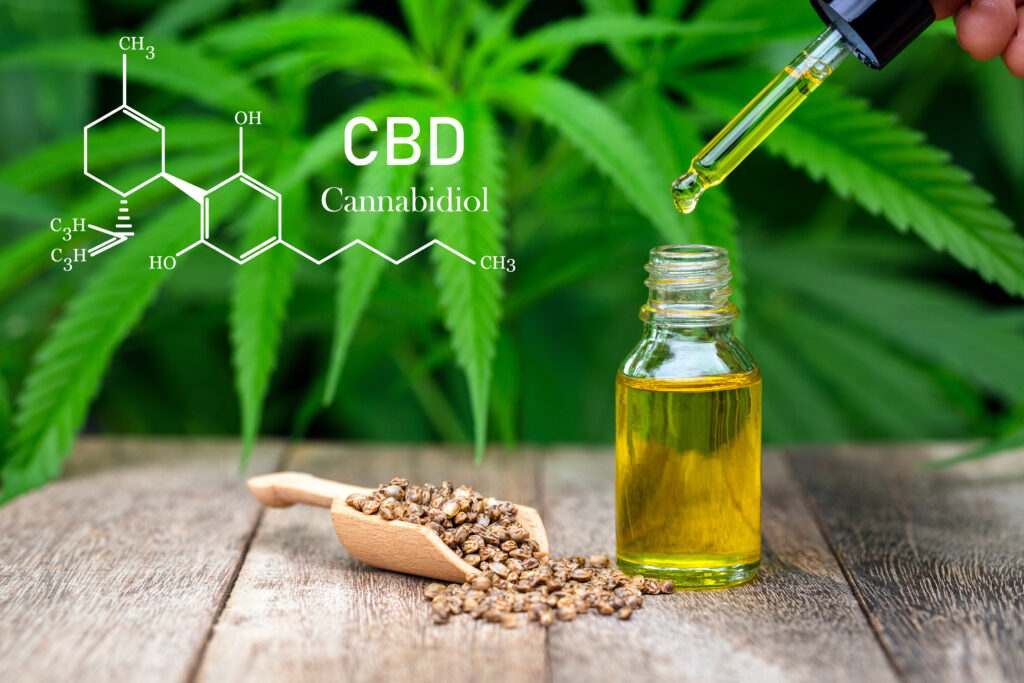Introduction
CBD (cannabidiol), a compound derived from the cannabis plant, has gained popularity in the athletic community, with claims of potential performance-enhancing benefits. However, understanding the relationship between CBD and athletic performance requires a comprehensive examination of the scientific evidence, regulatory considerations, and the experiences of athletes who have incorporated CBD into their routines. This guide explores the topic in depth to provide a comprehensive understanding of whether CBD can be considered a performance-enhancing drug for athletes.
Understanding CBD
CBD is a non-psychoactive compound found in cannabis. Unlike THC, another well-known cannabinoid, CBD does not produce a “high” effect. CBD interacts with the body’s endocannabinoid system, which plays a role in regulating various physiological processes, including mood, pain perception, and inflammation.
CBD and Exercise Recovery
One of the potential benefits of CBD for athletes is its impact on exercise recovery:
a) Pain Relief
CBD has shown promise in managing pain and inflammation, which can be beneficial for athletes recovering from intense physical activity or injury.
b) Muscle Recovery
CBD may help reduce exercise-induced muscle damage and inflammation, allowing athletes to recover faster and perform better in subsequent workouts.
c) Sleep Enhancement
Quality sleep is crucial for optimal performance and recovery. CBD has been reported to improve sleep quality and address issues such as insomnia and anxiety, which can hinder restful sleep.
CBD and Anxiety/Stress Reduction
Anxiety and stress can impact athletic performance. CBD has been suggested to have anxiolytic properties, potentially reducing performance-related anxiety and stress levels. By promoting a state of calmness and relaxation, CBD may help athletes focus and perform better under pressure.
CBD and Inflammation
Exercise-induced inflammation can impede performance and delay recovery. CBD’s anti-inflammatory properties may aid in reducing inflammation, potentially enhancing athletic performance by facilitating faster recovery and reducing muscle soreness.
CBD and Cognitive Function
CBD’s interaction with the endocannabinoid system extends to the brain, potentially impacting cognitive function and mental performance. While research in this area is still limited, some studies suggest that CBD may have neuroprotective effects and improve cognitive function, which could indirectly contribute to enhanced athletic performance.
Regulatory Considerations
Athletes must navigate the regulatory landscape surrounding CBD use. Although CBD is legal in many countries and regions, some sports organizations have specific regulations prohibiting its use. Athletes need to be aware of the rules and guidelines set by their respective governing bodies to avoid potential consequences.
Athlete Experiences and Testimonials
Several professional athletes have publicly shared their experiences with CBD, often reporting positive effects on their performance and overall well-being. While anecdotal evidence should be interpreted with caution, these testimonials contribute to the ongoing conversation about CBD’s potential benefits for athletes.
Lack of Scientific Consensus
Despite the growing interest in CBD, it is crucial to recognize that scientific research on CBD’s direct impact on athletic performance is still limited. Many studies have focused on preclinical or small-scale human trials, with inconsistent results. More comprehensive research, including larger-scale clinical trials, is needed to establish a stronger scientific consensus.
Ethical Considerations
The question of whether CBD should be classified as a performance-enhancing drug raises ethical considerations. Some argue that substances like CBD, which offer potential benefits without significant risks or adverse effects, should be allowed to support athletes’ overall well-being and performance. However, others contend that CBD should be subject to regulations to ensure fair competition and prevent potential misuse.
Conclusion
While CBD shows promise in several areas relevant to athletic performance, such as exercise recovery, anxiety reduction, inflammation management, and cognitive function, the scientific evidence supporting CBD as a direct performance-enhancing drug for athletes is currently limited. Athletes considering CBD should be mindful of the regulatory landscape governing their sport and consult with healthcare professionals to make informed decisions. Continued research, education, and open dialogue will be crucial in understanding the potential benefits and limitations of CBD as it relates to athletic performance.
- The Comprehensive Guide to the Benefits of Alpha Glyceryl Phosphorylcholine (Alpha GPC) Nootropics - October 19, 2023
- Benefits of Vitamin B12 - October 14, 2023
- Is CBD A Performance-Enhancing Drug For Athletes? - July 7, 2023

